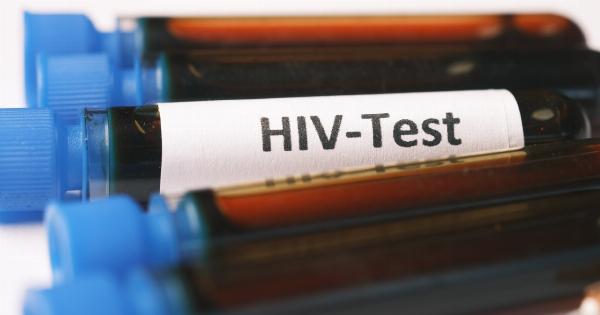HIV stands for human immunodeficiency virus, which is a virus that attacks the immune system.
This virus can lead to acquired immunodeficiency syndrome (AIDS), which is a severe, life-threatening condition that can cause various opportunistic infections. The virus is primarily spread through blood, semen, vaginal fluids, and breast milk. It cannot be transmitted through casual contact such as shaking hands or hugging.
Why is HIV Testing Important?
Nearly 1.5 million people are currently living with HIV in the United States alone, and approximately 14% of them do not even know they have the virus.
Testing for HIV is essential because early detection leads to early treatment, which can improve quality of life and increase life expectancy. Additionally, those who know they have HIV can take measures to prevent transmitting the virus to others.
What is a Complimentary HIV Exam?
A complimentary HIV exam is a free HIV test offered by many healthcare providers. These exams aim to encourage people to get tested regularly and provide them with access to treatment if necessary.
Anyone can get a complimentary HIV exam at a local clinic, community health center, or mobile testing van. The test itself is quick and easy, involving a small blood or oral swab sample.
How often should I get tested?
Individuals who engage in high-risk activities such as unprotected sex or sharing needles should get tested for HIV at least once a year.
If you have multiple sexual partners, regularly share needles, or have recently been diagnosed with another sexually transmitted disease, you may need to be tested more often. Talk to your healthcare provider to determine how often you should be tested for HIV.
What Happens After I Get Tested?
If your test results come back positive for HIV, the healthcare provider will provide you with information on resources and treatment options available to you.
This may include antiretroviral therapy (ART), which can reduce the amount of virus in your bloodstream, and Pre-Exposure Prophylaxis (PrEP), a medication that can reduce your risk of getting HIV if taken daily. It’s essential to receive timely and adequate care to manage the virus effectively.
How Can I Protect Myself from HIV?
Condoms, PrEP, and regular HIV testing are effective ways to prevent HIV transmission. Avoid sharing needles, syringes, or other drug-related equipment with others. If you have multiple sexual partners, use a new condom for each sexual encounter.
If you’re sexually active, it’s essential to get tested regularly for HIV and other sexually transmitted diseases.
Where Can I Find Resources on HIV?
Several resources offer information and support for those living with HIV. AIDS.gov provides information on HIV testing, prevention, treatment, and research. The Ryan White HIV/AIDS Program offers comprehensive care to individuals living with HIV.
The Centers for Disease Control and Prevention (CDC) also provides updates on HIV prevention, testing, and treatment.
Conclusion
HIV is a serious virus that can lead to severe health issues. Testing for HIV regularly and knowing your status is essential in managing the virus.
Taking preventative measures while also actively seeking treatment and utilizing available resources can help you stay healthy and manage the virus effectively.































